Meetings are usually held on the second Tuesday of each month at Ealing Green Church, W5 5QT, with the exception of the November meeting which takes place at Twyford School at 6.30 pm.
Please note that any changes to the programme will be notified on our website: www.ealinghistory.org.uk, by email and on local Facebook sites
2025
9 September – Professor Anthony Howe, (University of East Anglia) ‘Free Trade or Tariffs? The British experience, 1780-1914’
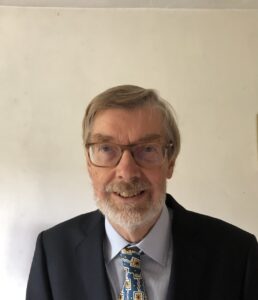 Anthony Howe is Emeritus Professor of Modern History at the University of East Anglia, having previously taught at the London School of Economics and Oriel College, Oxford. His books include Free Trade and Liberal England, 1846-1946 (1997) and he has edited The Letters of Richard Cobden (1804-1865), Britain’s leading free trader (4 vols., Oxford University Press, 2007-2015). He has also co-produced the freely-accessible website, https://www.cobdenletters.org/ incorporating educational resources for schools, especially relating to citizenship. He is currently working on an overview of the international history of free trade from Adam Smith’s Wealth of Nations (1776) to the creation of the World Trade Organization (1995)
Anthony Howe is Emeritus Professor of Modern History at the University of East Anglia, having previously taught at the London School of Economics and Oriel College, Oxford. His books include Free Trade and Liberal England, 1846-1946 (1997) and he has edited The Letters of Richard Cobden (1804-1865), Britain’s leading free trader (4 vols., Oxford University Press, 2007-2015). He has also co-produced the freely-accessible website, https://www.cobdenletters.org/ incorporating educational resources for schools, especially relating to citizenship. He is currently working on an overview of the international history of free trade from Adam Smith’s Wealth of Nations (1776) to the creation of the World Trade Organization (1995)
In the age of Trump, free trade, tariffs, and tariff wars have recently become headlines again after having long disappeared from popular consciousness. But for much of the nineteenth century these issues were central to British (and American) politics. Free trade or protection involved fundamental questions as to the best prescription for economic growth but also for social welfare. The choice had huge implications for Britain’s position in the world system as a European, imperial and global power. This talk will trace the oscillations in British policy-making in the early stages of industrialisation and warfare (1780-1815), the politics of gradual liberalisation, culminating in decisive debate over the Corn Laws, the greatest symbol of protection, and their repeal in 1846. This set the stage for the definition of Victorian Britain as ‘the free trade nation’ before this was challenged in a series of political movements for ‘fair trade’, ‘tariff reform’ and ‘imperial preference’, all of which failed before 1914. By contrast we may note that protection dominated American politics in this period, bolstered by fervent Anglophobic economic nationalism (the MAG before MAGA)
14 October Dr Daniel Cowling, National Army Museum, ‘Don’t Let’s Be Beastly to the Germans: The British Occupation of Germany, 1945-49’ [Please note that this talk replaces the one previously advertised]
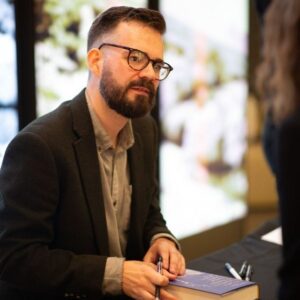
Dr Daniel Cowling is Senior Historian at the National Army Museum in London. He completed his PhD at the University of Cambridge, where he wrote a thesis on the British occupation of Germany. His first book, ‘Don’t Let’s Be Beastly to the Germans’, was published by Head of Zeus in 2023.
In the spring of 1945, a British civilian and military force arrived in northwestern Germany, the former industrial heartland of a defeated nation. They were tasked with building democracy from the ruins of Hitler’s Reich, and ‘winning the peace’ by eradicating Nazism from German hearts and minds. This talk will explore the history of the British occupation of Germany and the challenges that emerged in the aftermath of victory.
4 November Professor Lucy Wooding, Lincoln College, Oxford, ‘English Reformations: continuity and change in Tudor religion’, speaking to the sixth-form evening at Twyford CofE High school, W3 9PP, 6.30 pm
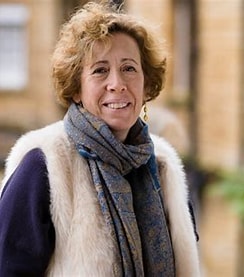 Professor Lucy Wooding is the Langford Fellow and Tutor in History at Lincoln College Oxford. She is a specialist in Reformation and Tudor history, and her most recent book is Tudor England: A History (Yale, 2022).
Professor Lucy Wooding is the Langford Fellow and Tutor in History at Lincoln College Oxford. She is a specialist in Reformation and Tudor history, and her most recent book is Tudor England: A History (Yale, 2022).
The English Reformation has been one of the most vigorously disputed events in early modern British history, in every century since its inception. It has been variously ascribed to popular enthusiasm, royal ambition, scholarly inspiration and international influence. This lecture will discuss the many different forces at work in the shaping of religious change during the sixteenth century, and ask how far underlying continuities survived the experience of disruptive religious and political initiatives.
9 December AGM and Christmas Social
2026
13 January Professor James Bjork, Professor of Modern European History, King’s College, London, ‘Where are the Poles? Redefining National Belonging in Poland after the Second World War’
 James Bjork is Professor of Modern European History at King’s College London. Born and raised in the Chicago area, Professor Bjork has taught in the History Department at King’s College London since 2005. His research focuses on the interplay between religious and national affiliations in East-Central Europe in the modern era, with a particular focus on the Roman Catholic church in Poland and Germany. His book, Neither German nor Pole: Catholicism and National Indifference in a Central European Borderland (2008), was awarded the Kulczycki Prize for the best first monograph in Polish Studies. Professor Bjork’s current research is focused on migration and ethnic difference in the reconstruction of Polish Catholicism after 1945.
James Bjork is Professor of Modern European History at King’s College London. Born and raised in the Chicago area, Professor Bjork has taught in the History Department at King’s College London since 2005. His research focuses on the interplay between religious and national affiliations in East-Central Europe in the modern era, with a particular focus on the Roman Catholic church in Poland and Germany. His book, Neither German nor Pole: Catholicism and National Indifference in a Central European Borderland (2008), was awarded the Kulczycki Prize for the best first monograph in Polish Studies. Professor Bjork’s current research is focused on migration and ethnic difference in the reconstruction of Polish Catholicism after 1945.
In 1945, so the story goes, Poland became ethnically ‘homogeneous’. Some elements of this story are incontestable. The vast majority of Poland’s prewar Jewish population had been killed during wartime German occupation, and most survivors of the Holocaust emigrated in the first years after the war. Frontier changes resulted in most of the country’s prewar Ukrainian and Belarussian minorities being outside the postwar Polish state, while millions of Germans who had lived within these new boundaries were forced to emigrate. But if we look more closely at the population that now inhabited the new Polish state, we see that assumptions about ‘homogeneity’ were highly premature. The question of who should be considered ‘ethnically Polish’ proved to be enormously complicated and controversial. Most problematic, but also most essential for Poland’s postwar reconstruction, were the three million post-war Poles had been classified as ‘racially’ German during the Second World War and thus had to undergo a process of national ‘rehabilitation’ or ‘verification’ in order to have national citizenship restored or bestowed. In this talk, Professor Bjork will be discussing his research into the debates and anxieties surrounding ethnic difference and divergent historical experiences that lurked beneath the image of culturally uniform postwar Poland. He will be focusing in particular on how the Roman Catholic church—ostensibly the guardian of a monolithic ‘Polishness’—wrestled with the challenges of mass migration and cultural difference within its parish communities.
10 February Professor Kate Cooper, Royal Holloway, University of London, ‘The Family in Slavery and Freedom: Evidence from Late Antiquity’
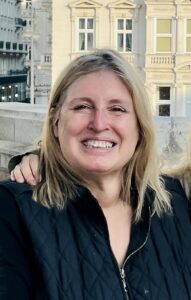 Kate Cooper is Professor of History at Royal Holloway, University of London. Her books include The Virgin and the Bride (1996), on how and why virginity replaced motherhood as the iconic credential of female moral authority; The Fall of the Roman Household (2007), on the Christianization of the family from the fourth to sixth centuries, focusing on the central role of married female householders; Band of Angels (2013), a general history of early Christian women; and Queens of a Fallen World (2023), a rereading of Augustine’s Confessions through the stories he tells of the women in his life.
Kate Cooper is Professor of History at Royal Holloway, University of London. Her books include The Virgin and the Bride (1996), on how and why virginity replaced motherhood as the iconic credential of female moral authority; The Fall of the Roman Household (2007), on the Christianization of the family from the fourth to sixth centuries, focusing on the central role of married female householders; Band of Angels (2013), a general history of early Christian women; and Queens of a Fallen World (2023), a rereading of Augustine’s Confessions through the stories he tells of the women in his life.
This talk surveys the landscape of domestic slavery in the later Roman Empire, the period when Christian ideals first impacted the ethical conscience of Roman elites. Surprisingly, we have particularly good evidence for the ethical debates about the conduct of female slave-owners, which can be illuminated by comparison to recent scholarship on nineteenth-century plantation slavery. Also surprising are the differences between nineteenth-century and ancient attitudes to slavery itself. The Apostle Paul had written that ‘there is neither slave nor free’ in the Christian community, and ancient readers wrestled with how slavery should be adapted in light of the idea of spiritual equality. Yet they do not seem to have taken this as a suggestion that the slave system itself should be abolished, and it is worth asking why not
10 March Dr Ariel Hessayon, Goldsmiths, University of London, ‘The Early Quakers and the English Revolution , 1641-1660’
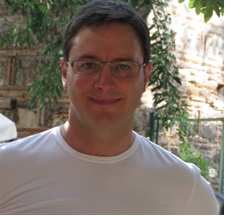 Dr Ariel Hessayon is a Reader in early modern history at Goldsmiths, University of London. He is the author of ‘Gold tried in the fire’. The prophet Theaurau John Tany and the English Revolution (Ashgate, 2007) and co-editor / editor of several collections of essays on Scripture and Scholarship in Early Modern England. He has also written extensively on a variety of early modern topics: antiscripturism, antitrinitarianism, ball games, book burning, communism, environmentalism, esotericism, extra-canonical texts, heresy, crypto-Jews, Judaizing, millenarianism, monstrous births, mysticism, prophecy, and religious radicalism. His latest book is Rediscovering Enoch? The Ancient Jewish Past from the Fifteenth to Nineteenth Centuries (Brill, 2023)
Dr Ariel Hessayon is a Reader in early modern history at Goldsmiths, University of London. He is the author of ‘Gold tried in the fire’. The prophet Theaurau John Tany and the English Revolution (Ashgate, 2007) and co-editor / editor of several collections of essays on Scripture and Scholarship in Early Modern England. He has also written extensively on a variety of early modern topics: antiscripturism, antitrinitarianism, ball games, book burning, communism, environmentalism, esotericism, extra-canonical texts, heresy, crypto-Jews, Judaizing, millenarianism, monstrous births, mysticism, prophecy, and religious radicalism. His latest book is Rediscovering Enoch? The Ancient Jewish Past from the Fifteenth to Nineteenth Centuries (Brill, 2023)
Of all the new religious movements that emerged during the English Revolution of 1641–60 the Quakers were the largest, most successful and enduring. Barry Reay, for example, estimated that by the early 1660s there were certainly between 35,000 and 40,000 Quakers in England and Wales, and perhaps as many as 60,000 out of a population numbering some 5.28 million people. This talk will look at its defining characteristics, also its preaching, literary style, modes of speech, use of silence, prophetic behaviour and attempted miracle working within the context of a widespread belief in an imminent apocalypse and the re-emergence of Christian primitivism. Finally it will suggest some reasons for the success of early Quakerism: the appeal of its message and charisma of those who preached it – notably George Fox (1624–1691) and James Nayler (1618–1660)
14 April Professor Rebecca Earle, University of Warwick, ‘What can you learn from a cookbook (other than how to cook)?’
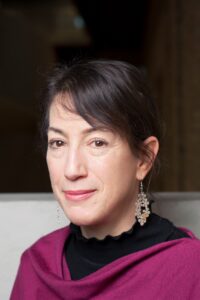 Rebecca Earle is a historian of food. She has also written about the cultural history of Spanish America and early modern Europe. She is interested in how ordinary, every-day activities such as eating or dressing shape how we think about the world and how others view us. She has written a number of books on Latin-American history. Her book, The Body of the Conquistador, explored how food, and eating, shaped the experience of colonialism in Spanish America. It won the Conference on Latin American History’s Bolton-Johnson Prize. Her most recent book is Feeding the People: The Politics of the Potato, Cambridge University Press 2020.
Rebecca Earle is a historian of food. She has also written about the cultural history of Spanish America and early modern Europe. She is interested in how ordinary, every-day activities such as eating or dressing shape how we think about the world and how others view us. She has written a number of books on Latin-American history. Her book, The Body of the Conquistador, explored how food, and eating, shaped the experience of colonialism in Spanish America. It won the Conference on Latin American History’s Bolton-Johnson Prize. Her most recent book is Feeding the People: The Politics of the Potato, Cambridge University Press 2020.
You can learn the history of just about anything from a cookbook. Cookbooks help us understand the Second World War. They are rich sources for studying the lives of women in the past. They form part of the history of the scientific revolution and the sexual revolution of the 1960s. Cookbooks reveal the impact of colonialism, the pervasive nature of racism, and the emergence of nationalism. They are a great way to chart the rise of consumerism and the emergence of new cultural trends. This lecture explores the value of cookbooks as historical sources, and also encourages participants to investigate the family histories embedded in the cookery books and notebooks containing their grandmother’s recipes that clutter their own bookshelves. Cookery books, in short, are a remarkable and powerful window into the past.
12 May Professor Nicholas Guyatt (University of Cambridge), ‘Jefferson’s Wolf: The Struggle to End Slavery in the Founding Era’
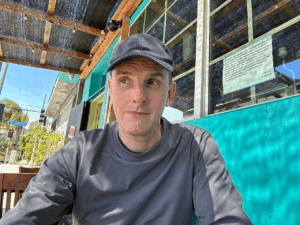 Nicholas Guyatt is Professor of North American History at the University of Cambridge. His books include Bind Us Apart: How Enlightened Americans Invented Racial Segregation (Basic Books, 2016), The Hated Cage: An American Tragedy in Britain’s Most Terrifying Prison (Basic, 2022) and, with Christa Dierksheide, Jefferson’s Wolf: The Struggle to End Slavery in the Founding Era (Harvard University Press, 2026). He has written about American history and politics for the New York Times, the New York Review of Books, the London Review of Books, and the Guardian, among other publications.
Nicholas Guyatt is Professor of North American History at the University of Cambridge. His books include Bind Us Apart: How Enlightened Americans Invented Racial Segregation (Basic Books, 2016), The Hated Cage: An American Tragedy in Britain’s Most Terrifying Prison (Basic, 2022) and, with Christa Dierksheide, Jefferson’s Wolf: The Struggle to End Slavery in the Founding Era (Harvard University Press, 2026). He has written about American history and politics for the New York Times, the New York Review of Books, the London Review of Books, and the Guardian, among other publications.
4 July 2026 is the 250th anniversary of the Declaration of Independence, and of the ringing claim that “all men are created equal.” The author of the Declaration, Thomas Jefferson, owned more than a hundred human beings when he wrote those words and many hundreds more before his death, exactly fifty years later, on 4th July 1826. He freed just a handful of enslaved people across his long life, and a handful more in his will. How do we account for the fact that America’s founding proponent of equality was so thoroughly implicated in slavery?
Most historians have presented this as a ‘paradox’ – but in my new book (co-authored with Christa Dierksheide), I argue that the key to understanding Jefferson’s thinking about slavery is to appreciate his unshakeable commitment to Black exclusion. Jefferson became convinced that an independent American nation had to be a white nation; while he argued privately (and, occasionally, publicly) that slavery should be abolished, he insisted that those freed from slavery should be removed from the new nation. When this proved wildly impractical – and when African Americans themselves refused to leave — Jefferson’s antislavery impulses were easily subdued. In this talk I’ll explain how he developed his ideas about race and slavery, how he maintained them even when he was challenged by his contemporaries, and the impact of his inaction on the slavery question for the future of the United States.
9 June Professor Heather Jones, University College London, ‘The First World War in the Mediterranean’
 Heather Jones joined University College London as Professor in Modern and Contemporary European History in 2018, having previously worked at the London School of Economics and Political Science where she was Associate Professor in International History. She works on war cultures 1880-1945. Her main research expertise is on the First World War on which she has published widely. Her most recent book is For King and Country: The British Monarchy and the First World War (Cambridge University Press, 2021). She is currently working on a major study on the impact of blockade during the global First World War. She is a Fellow of the Imperial War Museum’s Institute for the Public Understanding of War.
Heather Jones joined University College London as Professor in Modern and Contemporary European History in 2018, having previously worked at the London School of Economics and Political Science where she was Associate Professor in International History. She works on war cultures 1880-1945. Her main research expertise is on the First World War on which she has published widely. Her most recent book is For King and Country: The British Monarchy and the First World War (Cambridge University Press, 2021). She is currently working on a major study on the impact of blockade during the global First World War. She is a Fellow of the Imperial War Museum’s Institute for the Public Understanding of War.
This talk focuses on the First World War Allied blockade of the Mediterranean, a maritime blockade initiated by Britain and France, later assisted from 1915 by Italy and other Allied powers. It argues that this blockade raises major questions about the ways that the First World War became a ‘total war’, showing wartime radicalisation in the targeting of civilian non-combatants and how this became a war norm.
Members (£15 annual fee) and Visitors (£5 per talk) Students free.
Secretary: Philip Woods tel. 0208 579 2174 Email: philipgwoods@outlook.com
For up-to-date details: www.ealinghistory.org.uk
